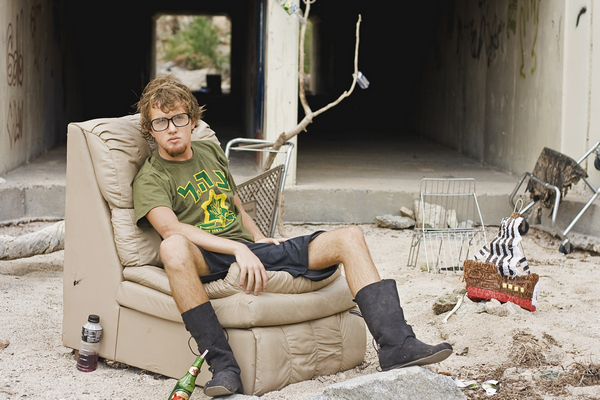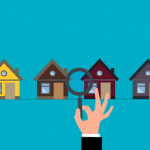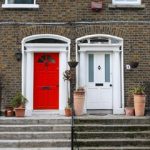
If you’ve put your house on the market and sold it before you’ve found a place to live, meaning you have nowhere to go, what happens next? The first thing I’d do if this happened to me is to celebrate.
What to do if you’ve sold your house with nowhere to go? If you’ve sold your house with nowhere to go you should step up your search for a place to buy, but at the same time find somewhere to rent. If you don’t find anywhere to buy before your buyers want to complete you should move into rented accommodation and continue your property search from there.
When you compare “sold your house with nowhere to go” to “found your dream home but not sold your house“, there’s no contest. Read on to discover how your position of having no where to go because you’ve sold your house could mean you save yourself over £70,000.
What happens if I sell my house but can’t find one to buy?
If you find you’ve sold your house but you can’t find one to buy, you should find a place to rent instead. This way you keep your buyers happy and progress the sale to completion, whilst stepping up your search for a place to live.
You will have to lock yourself into a tenancy agreement for a minimum of six months, but this is far better than losing your sale. Especially if your house has been on the market for some time. But even if it hasn’t and you’ve sold your house quickly, don’t look a gift horse in the mouth.
In a situation like this often times homeowners start to worry about having to pay rent. This worry is heightened as the rent can be more expensive than your original mortgage payments. However, if you sell your house and move into rented accommodation, you put yourself in a strong buying position.
Take a quick read of this article about are you better selling your house and renting before buying again. Pay particular attention to the section with the 15 advantages of doing this. However, I also want to point out there are disadvantages to this strategy too. In the article I also explain the 10 disadvantages too.
Why does renting a house before buying again give you an buyer’s advantage (even if the rental payments are higher than your mortgage payments)?
There are many homeowners who hate the idea of renting between selling and buying. Their top complaints are that paying rent is dead money and can be more expensive than a mortgage. Plus they hate the idea of having to move twice.
However, you are far more likely to pay less for your next property if you are living in rented accommodation. Homebuyers don’t like property chains and they cause huge amounts of stress. So if a vendor has a choice between a buyer who doesn’t have a house to sell vs a person with a house to sell, they are far more likely to go with the the buyer who’s not got a house to sell and who’s not in a chain.
In addition to this, the vendors are more likely to accept a lower offer from you if you are prepared to be a bit cheeky with your offer.
Take a quick read of this article about how to make an offer on a house below asking price. Bear in mind when you read this article point number eight, which is key to making a low offer on a house. You may also want to have a quick read about what % is a cheeky offer on a house. In this article I explain about when is a cheeky offer rude or disrespectful.
Why cash offers get a better discount on properties and why this is good news if you’ve sold your house with nowhere to go
Landlord Today has done some research on how vendors will often accept an all-cash purchase offer over a higher-priced offer with a mortgage. But I think there’s more to this theory than what is explained in their article (You can read their article here).
In the article you’ll see that cash buyers expect to pay 9% less on average. But this percentage is higher in the North East where this increases to 14%. But in Falkirk mortgage buyers are paying 32% more than cash buyers.
What I think is partly underlying the lower offers is that those who have cash to buy properties are more likely to offer less. This is because they are more seasoned property buyers. I accept that vendors prefer a cash-buyer over someone who has to buy with a mortgage. But think about it, most of the people buying with a mortgage are going to be in a house chain. Which in my opinion is partly why their offers are higher.
So as you’ve sold your house with nowhere to go, and if you move into rented accommodation, you are in a similar position to these cash buyers. If you accept this fact and if you are also happy to change your approach to making offers, you are likely to get a good discount on the purchase price of your next home. Let’s take a look at an example.
An example of how having sold your house with nowhere to go can be a great buyer’s advantage
For this example, I’m going to assume you have just sold your current house for £250,000. I am also going to assume your next purchase would ordinarily cost £350,000. Let’s also say that your current mortgage payments on a mortgage of £200,000 are £1,050 per month. But to rent a similar house in the area, the rent would be £1,500 per month instead.
What the overall savings will be in this example:
Assuming you rent a house for let’s say 12 months instead of just six. This will cost an extra £5,400 of excess rent over what your current mortgage costs (i.e. £1,500 – £1,050 = £450 x 12= £5,400). But let’s assume you need to store some of your furniture, as the rental house is too small for this to fit. For this purpose I’m going to assume this will cost you £500 per month for 12 months.
However, I going to assume you’re able to get your next house at a higher discount, because you are not in a chain. If we assume you achieve the average 9% discount explained above. This represents a discount of £31,500 on a house worth £350,000. This would mean you get your next house for £318,500 instead of £350,000.
Assuming you originally planned to put a mortgage on this house, but that was based on paying £350,000. You carry over the equity in your old house, which will be £45,000 (I have assumed selling costs of £5,000). Plus you have savings of £50,000, in addition to your equity.
This means you can use £45,000 of your savings as an additional deposit, and £5,000 to cover the buying costs. This makes your deposit £90,000 in total.
Your new mortgage if you paid £350,000 would be £260,000 (i.e. £350,000 – £90,000). Which would have made your new mortgage payments £1,372, assuming a 4% interest rate and paid over 25 years. Whereas your new mortgage if you buy for £318,500 would be £228,500. Which would make your new mortgage payments £1,206 using the same interest rate and mortgage term of 25 years.
You also save on Stamp Duty too on the lower purchase price. Which is assumed as a saving of £1,575 at 5% on £31,500.
In summary your overall saving from the fact that you sold your house with nowhere to go
To add up the overall savings as a result of selling your house with nowhere to go, is as follows:
- Your saving on the purchase price £31,500.
- Stamp Duty saved on the reduced purchase price £1,575.
- Saving on mortgage payments over 25 years £49,800 (i.e. £1,372 – £1,206 = £166 x 12 x 25 = £49,800).
- Less the extra cost in rent payments £5,400.
- Less the cost of storing additional furniture for six months £6,000
Therefore your overall saving if you rent between selling and buying would be a total of £71,475. So you may want to think again if have looked into renting, but this would be more expensive than your mortgage. Plus if you have to potentially pay to store some or all of your furniture.
You may want to re-work these figures based upon only getting an extra discount of say 5% instead of 9%. But even with this lower discount, what you save versus what you pay in rent well is worth it. But of course I accept you need to substitute what you are actually selling your house for along with changing all the other numbers to your specific circumstances.
If you would like to have access to this free tool to calculate how much you could save on your next house purchase, plus learn how to sell your house in under 2 weeks for more money, please take a look at my course…How you sell your house in under 2 weeks for more money.
With this tool, you’ll be able to input your own variables. In the demo video that comes free with this course, I explain how to get the most out of this easy to use tool. I give two more examples of house purchase price: £250,000, which gives a saving of £51,852 and £500,000, which gives an insane saving of £148,615.
You won’t be able to get this tool anywhere else, and it comes free when you buy my course on how to sell your house in under 2 weeks for more money. There’s a 30 day money back guarantee on the course too, and even if you don’t get anything from the course and ask for a no quibble refund, you get to keep this free tool. Which means you have nothing to lose.
Also, what if you only have to rent for just six months instead of 12 months. But I suggest you take a look at the how to sell your house in 2 weeks course I linked to above. But also take a look at the gap in purchase prices between cash buyers and mortgage buyers in your location.
This great tool also doesn’t take account of the interest you’ll earn on the money you have on deposit whilst renting. I accept this is going to be low, but it all adds up.
Convert your current stress of having sold your house with nowhere to go into reduced stress as a chain-free buyer
Plus think about the reduced stress levels when you’re not in a property chain! You may find yourselves arguing over what you should do next. This is likely down to the fact you are stressed about having nowhere to go. But I hope this article has given you a whole new perspective on the situation.
I hope this has brought a smile to your face instead, when you begin to think about the fantastic position you will be in when you find your dream home if you go ahead with your sale now and become a chain free property buyer.
Where to live between selling and buying
Where you live between selling and buying doesn’t matter as much as going ahead with your house sale if you have a buyer but you’ve not found somewhere to buy yourself.
Ask if you can live with family or friends, or rent a house, or find a caravan to rent. You could even live temporarily in a bed and breakfast and ask for a short term let at a reduced rate. You might find the bed and breakfast will jump at having guaranteed income. This is especially true if it’s out of season for them.
It actually shouldn’t matter if where you live is a bit on the grotty side. It’s for a short term! I don’t mean to live somewhere dirty, as that’s not right. But it doesn’t have to be anywhere special or expensive.
But renting between selling and buying is your best option. Speak with your estate agent and get them to help you. It’s in their interest to find you somewhere to live, as they don’t want your sale to fall through either, as it will cost them a sales commission.
But whatever you do make sure you don’t upset your buyers by making them wait before you find a place to buy.
I hope you’ve enjoyed this article about sold my house with nowhere to go
If you’ve enjoyed this article about sold my house with nowhere to go please share it on your favourite social media site.
Also, if you have any questions, please feel free to comment below too. Alternatively, if you need more help, please feel free to contact us on our contact us page here. Or join the discussion and ask your question in the property forum.




